October 17, 2020
What is the best test to check for heart problems? To answer this question and take a deep dive into the health of my heart, I recently spent hours and hours at a medical facility in Los Angeles being put through the most advanced cardiac workup known to man—then packaged my entire experience into this special podcast episode that's complete with physician interview videos, deep dives into the state of the art equipment that was used, and much more.
So prepare to have your mind blown by this rare glimpse into the world of heart health and to learn everything you need to know about exactly what's going on with your ticker.
My guest on this episode, Dr. Ram Dandillaya, is a cardiologist in the Division of Cardiology at the Cedars-Sinai Heart Institute. He is board-certified in cardiovascular diseases, nuclear cardiology, cardiac computed tomography, echocardiography, and internal medicine.
Dr. Dandillaya has a clinical interest in preventative cardiology, peripheral vascular disease, and cardiopulmonary exercise testing (CPET). In addition to being a fellow of the American College of Cardiology, Dr. Dandillaya is a member of numerous societies, including the American Heart Association’s Council on Clinical Cardiology, the American Society of Nuclear Cardiology, the Society of Vascular Ultrasound, the Los Angeles and American Society of Echocardiography and the American College of Physicians. In 2009, Dr. Dandillaya was elected to a two-year term as Vice President of the Cedars-Sinai Alumni Association.
Dr. Dandillaya’s research has been published in major scientific journals and he has present abstracts at many national meetings, including annual sessions of the American College of Cardiology and American Heart Association. He is also actively involved in the teaching of fellows and residents at Cedars-Sinai Hospital.
Dr. Dandillaya’s more recent research interests include issues related to percutaneous aortic valve replacement, the role of 64-slice computed tomography and coronary calcium in coronary artery disease, and the prevention of atherosclerotic heart disease.
In this episode, you'll discover:
Part 1: Ben's Examination At The Clinic
-Ben's heart ultrasound…6:06
- Enlarged heart ventricle is common in ultrasounds (athlete's heart, or cardiomegaly)
- 50/50 on finding issues in “healthy” patients
- High-carb diet can be deleterious from lipid oxidation standpoint
- Polyunsaturated fats are huge culprits for diabetes
- Protocol: set of diagnostics on each valve of the heart
- Checking for function and chamber sizes
- Ben's health protocol:
- Walk 5-7 miles a day
- Sauna 3-4 times per week
- 45-minute kettlebell, HIIT session
- Hiking, tennis, etc.
- Article: Athletic heart syndrome
- Article: Echocardiography in the evaluation of athletes
-Carotid duplex scan…19:22
- Triglycerides, high LDL often found in keto practitioners
- Carnivore diet problems:
- Too extreme
- Lack of controlled data
- Social problems with not eating plants
- How young people should begin their nutrition journey
- Study physiology, microbiology, to understand the building blocks of the body
- Bias often found in the educational route (dated knowledge)
- Institute for Integrative Nutrition
- Institute for Functional Medicine
- BGF podcast with Chris Kresser
- BGF podcast with Paul Chek
- Article: Carotid artery ultrasound: Should you have this test?
-Abdominal aorta ultrasound…30:43
- BGF podcast with Jane Goldberg
- EMF-blocking underwear Ben wears (use code BEN to save 20%)
- Faraday full-body clothing (use code BENPROTECT to save 5%)
- Article: Abdominal Aorta Ultrasound
-Endothelial Peripheral Arterial Tone (Endo PAT) test…39:50
- Measuring nitric oxide levels
- 15 minutes no talk, no movement
- 5-minute baseline
- 5-minute occlusion
- 5-minute dilation
- Article: Assessing Endothelial Vasodilator Function with the Endo-PAT 2000
- Article: The 10 Best Foods to Boost Nitric Oxide Levels
-12 Lead EKG…50:00
- Multiple locations; vectors to examine the heart from multiple angles
- NatureBeat app for HRV
- The test they did on Ben does not track HRV
- Heart rate = 42 bpm
- The Electrocardiogram In Athletes Revisited
- Atrial Fibrillation in Competitive Athletes
-EKG while on treadmill…54:45
- Ultrasound of heart at rest, and while exercising
- Max exercise back into resting state to examine heart
- Harder and faster every 3 minutes
- Ben's heart rate returned to 72 bpm after 2 minutes
- Article: What is an exercise electrocardiogram?
- Article: Bruce protocol stress test
-Coronary calcium scan…1:09:45
- Ben's score is 42; small amounts of calcium
- Many men Ben's age do not have calcium at all
- Spotting calcium at a young age can prevent heart disease later in life
- BGF podcast with Dr. William Davis
- It appears that in active, endurance athletes, elevated CAC scores are not uncommon, and that metabolic fitness appears to be protective in this respect. For example:
- Article: Your athlete-patient has a high coronary artery calcification score – ‘Heart of Stone’. What should you advise? Is exercise safe?
- Article: Fitness, Exercise, and Coronary Calcification
- Article: Prevalent CAC common in high-volume endurance activity athletes, but no long-term risk for mortality
Part 2: Ben And Dr. Dandillaya Review The Results Of The Exam
-EKG…1:19:05
- Ben's resting heart rate = 42 bpm
- Possible “early repolarization” pattern
- Keep copy of EKG handy to inform docs in the event of chest pain
- Heart rate is indicative of high vagal tone
- Tech is making EKG results more accessible via smartphone apps and the like
- Ensure mineral levels, hydration, etc. are topped off while performing in stressful situations (such as swimming where you can pass out and die)
-Vascular ultrasounds (echocardiogram)…1:25:00
- Ejection fraction – measure of heart's contractility
- Ben's ejection fraction = 63%
- Congestive heart failure; at risk for cardiac death, arrhythmia, etc.
- Hypertrophic cardiomyopathy (athlete's heart)
- Doppler flow: blood flow patterns across the heart's chambers
- Ben's levels and readings are all good across the board
-Carotid artery scan…1:29:40
- Ben's results are very good
- Thickening of carotid arteries occurs with pollution, toxicity in the air
- Ultrasound does not have the radiation levels of X-rays
- Customized recommendation on the frequency of being examined
-Abdominal aorta ultrasound…1:32:20
- Aorta can become aneurysmal due to lifestyle, genetics
-Treadmill EKG…1:33:50
- Not done often in the COVID-19 era; danger of exercising with a mask on
- Looking for arrhythmia, atrial fibrillation
-Advanced lipid panel…1:37:50
- Lipoprotein fractionation
- Good cholesterol (HDL) vs. bad cholesterol (LDL)
- LDL isn't bad per se; the size of the particles is what can be problematic
- Lipids become oxidized on vessel walls; how atherosclerosis starts
- Ben's results:
- Total cholesterol = 248
- HDL = 104 (extremely high)
- LDL = 126
- Triglycerides = 82
- C-reactive protein = <0.3 (very low)
- Lp-PLA2 = 154 (slightly elevated)
- Lipoprotein (a) = 16 (should be below 75)
- TMAO = 18.9 (should be between 6-10)
- Ways to decrease Lp-PLA2
- TMAO has higher levels in deep-sea fish; confounding variables on how to interpret the data
- Article: The Role of Advanced Lipid Testing in the Prediction of Cardiovascular Disease
- Article: Examining the paradox of high high-density lipoprotein and elevated cardiovascular risk
- Article: Atherogenic Index of Plasma and Triglyceride/ High-Density Lipoprotein Cholesterol Ratio Predict Mortality Risk Better Than Individual Cholesterol Risk Factors
- Article: Lp-PLA2, a new biomarker of vascular disorders in metabolic diseases
- Article: The Beneficial Effects of Alpha Lipoic Acid Supplementation on Lp-PLA2 Mass and Its Distribution between HDL and apoB-Containing Lipoproteins in Type 2 Diabetic Patients: A Randomized, Double-Blind, Placebo-Controlled Trial
- Article: 10 Things to Know About Lipoprotein(a)
- Article: Trimethylamine N-Oxide: The Good, the Bad and the Unknown
-Endo PAT test…1:52:23
- Endothelium is a single layer of cells that goes to the blood vessels; considered to be an organ of the body
- Nitric oxide (NO) secreted by the endothelium allows for good cardiovascular health
- Ben's RHI (reactive hyperemic index) = 1.48 (normal is 1.67)
- The Strategene report (via which Ben found out he has impaired nitric oxide synthase pathways)
- Beets, sunshine, etc. support NO levels
- Arginine to supplement NO levels
-Coronary calcium scan…1:56:05
- Higher the score, the higher the risk
- Ben's score = 42 (higher percentile for age and gender)
- Athletic training background is a factor in the score being higher than expected
Click here for the full written transcript of this podcast episode.
Resources mentioned:
– BGF podcasts:
- With Chris Kresser
- With Paul Chek
- With Jane Goldberg
- With Dr. William Davis
- With Darshan Shah of Next Health
- With Dr. Ben Lynch of Strategene
– Supplements
– Other resources:
- Sauna
- Kettlebell
- EMF-blocking Underwear by Lambs (use code BEN to save 20%)
- Faraday Full-body Clothing by NoChoice (use code BENPROTECT to save 5%)
- NatureBeat App for HRV
- Strategene
- Next Health
- Institute for Integrative Nutrition
- Institute for Functional Medicine
– 12 Lead EKG:
– Ultrasound Echocardiogram:
– Carotid Ultrasound:
– Abdominal Aorta Ultrasound:
– Exercise EKG:
– Advanced Lipid Panel:
- The Role of Advanced Lipid Testing in the Prediction of Cardiovascular Disease
- Examining the paradox of high high-density lipoprotein and elevated cardiovascular risk
- Atherogenic Index of Plasma and Triglyceride/ High-Density Lipoprotein Cholesterol Ratio Predict Mortality Risk Better Than Individual Cholesterol Risk Factors
- Lp-PLA2, a new biomarker of vascular disorders in metabolic diseases
- The Beneficial Effects of Alpha Lipoic Acid Supplementation on Lp-PLA2 Mass and Its Distribution between HDL and apoB-Containing Lipoproteins in Type 2 Diabetic Patients: A Randomized, Double-Blind, Placebo-Controlled Trial
- 10 Things to Know About Lipoprotein(a)
- Trimethylamine N-Oxide: The Good, the Bad and the Unknown
– Endo-PAT:
- Assessing Endothelial Vasodilator Function with the Endo-PAT 2000
- The Strategene report (via which Ben found out he has impaired nitric oxide synthase pathways)
- The 10 Best Foods to Boost Nitric Oxide Levels
– Calcium Scan:
- Your athlete-patient has a high coronary artery calcification score – ‘Heart of Stone’. What should you advise? Is exercise safe?
- Fitness, Exercise, and Coronary Calcification
- Prevalent CAC common in high-volume endurance activity athletes, but no long-term risk for mortality
Episode sponsors:
–Kion: My personal playground for new supplement formulations, Kion blends ancestral wisdom with modern science. Ben Greenfield Fitness listeners, receive a 10% discount off your entire order when you use discount code BEN10.
–Organifi Gold Pumpkin Spice: A new take on an ancient secret: Pain-soothing herbs, incredible antioxidants, and phytonutrients all in one delicious, soothing “Golden Milk” nighttime tea! Receive a 20% discount on your entire order when you use discount code BENG20.
–Clearlight Saunas: You can be sure that I researched all the saunas before I bought mine and Clearlight was the one that stood out from all the rest because of their EMF and ELF Shielding and their Lifetime Warranty. Use discount code BENGREENFIELD to get $500 off your sauna, free shipping and a free bonus gift!
–Thrive Market: Organic brands you love, for less. Your favorite organic food and products. Fast and free shipping to your doorstep. Receive a gift card worth up to $20 when you begin a new membership.

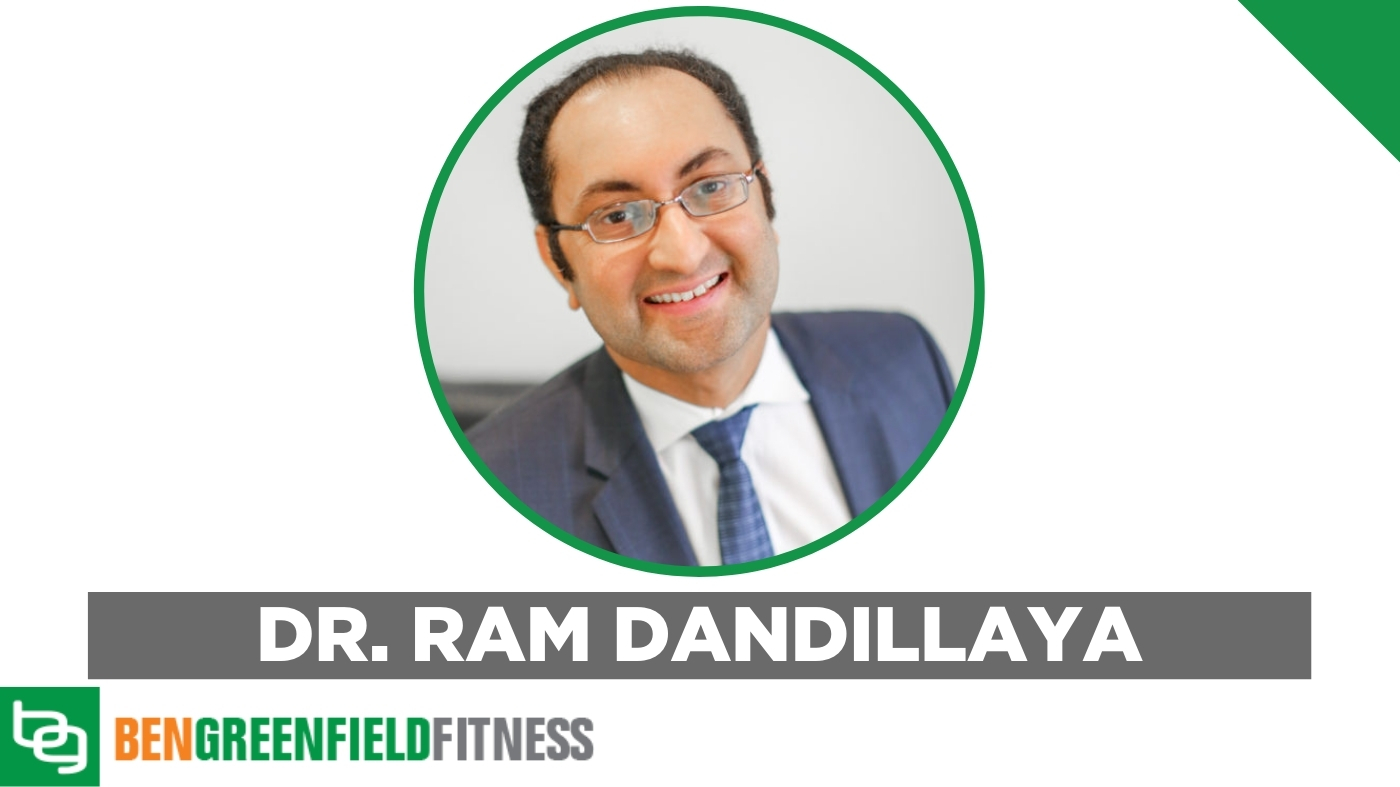
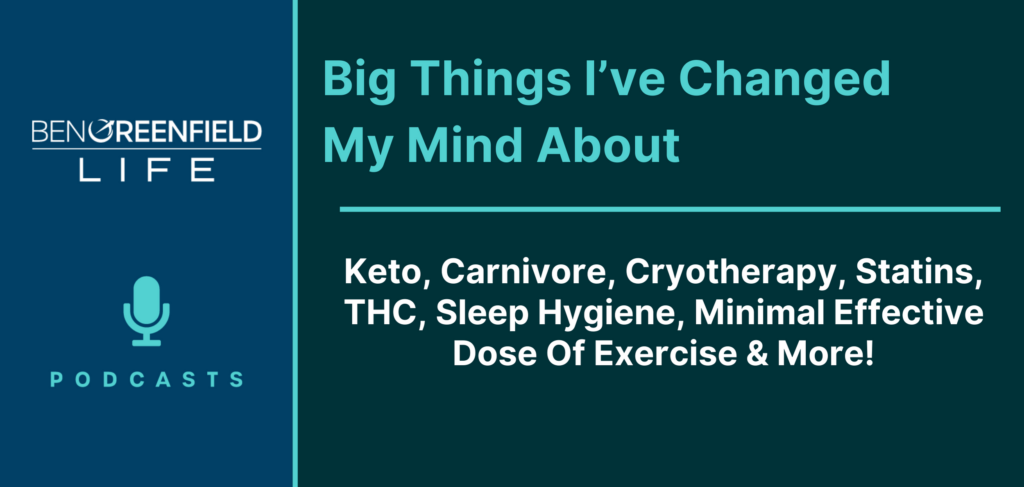
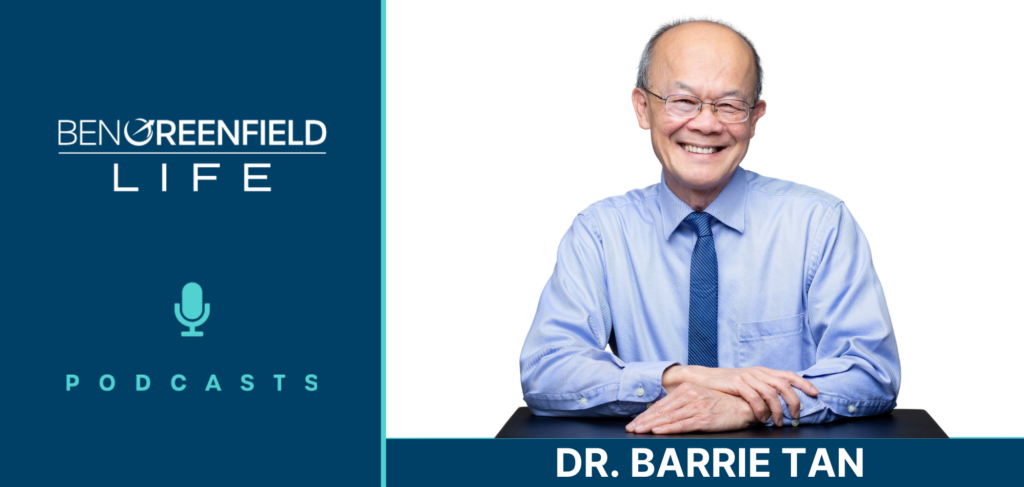





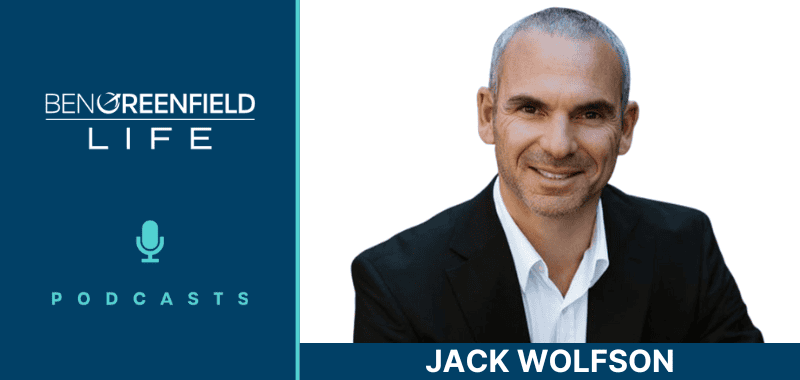



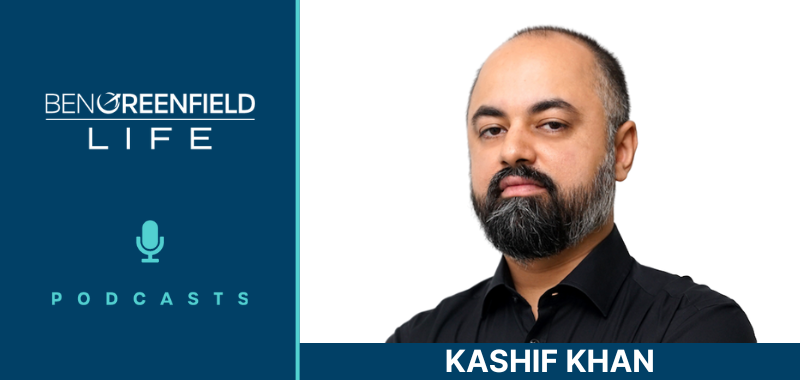
Ben – why doesn’t the carotid scan show “thickness” of your left and right arteries? For example, even an average CIMT measurement would be interesting to note. I know this is hard to be done sometimes on site (I had to send my out to a third party lab to get a CIMT reading from my ultrasound). I have seen other studies too where this thickness is very variable and not a good predictor of cardio issues down the line; for example “normal” is very different for different ethnicities and countries.
Curious to your thoughts on this. Allegedly, thickness/CIMT measurement is supposed to help show someone that a thickening of the carotid’s means plaque formation later in life, but as mentioned and tested above, sometimes the velocities are a more accurate predictor of plaque in the future.
Just listened to this one, I’m worried about you, 95th% on the calcium scan. I’m worried about you, time to go whole food plant-based like the good doctor recommended…
Interesting podcast, I actually by coincidence had a calcium scan down the same week as my cholesterol levels have always been high (286mg/dl) and wanted to see where I sit. I’m 49 and very active (weights 3 times a week, KB 2 times and mountain bike once a week) and eat well etc. My score came back as 98! I think moving forward I will need to get my ldl (201mg/dl) under control but not via statins so i will be listening intently to watch research you will be carrying out and providing in your podcast. For now I’m going to get niacin and k2 into my supplement regime and perhaps look at one of your previous mentioned peptides ARA 290.
“Whatever your cholesterol level is…it’s too high!”
I LMAO!
It’s scary when the patient knows more than the doctor and has to correct the doctor where he’s wrong.
It’s not wise to listen to Conventional Wisdom.
I was waiting for the doctor to recommend a statin and an vegan diet.
People should check Nadir Ali or Naseem Malhotra.
Ben – I will watch/listen to this multiple times. My father had quadruple bypass at 44 (smoked up until that surgery and then stopped and lived a much healthier life). He made it to 77. I’ve lived differently but am not exempt from certain risk factors. I’ve had a Boston Heart Test lipid/blood profile, calcium scoring a few years ago. My ldl is pesky. This episode has given me a kick in the behind to get back to my integrative medicine doctor and get up to speed. Thank you.
Ben – this was a great podcast. Thank you. Tons of great information and insight. Question for you – do you have any podcasts where you deep dive into resting heart rate? I recently purchased an Oura ring and while my RHR is not high (low to mid 50’s), it takes a while to get there and my recover index is always painfully low. I sleep well, eat well, exercise regularly and have a relatively low stress index. Ideally, I’d like to get my RHR to the 40’s.
This could not have come at a better time for me. I leave tomorrow night (10/31) for Atlanta to have robotic surgery done to a heart valve which is regurgitating. I am from Hawaii and this would usually be performed here with typical open heart surgery through the front of the chest. They will not have a robotic option here until the middle of next year and that would be too late for me.
I am a 55 yr old very healthy lifelong athlete male. Formerly raced bikes, competed in martial arts since my teens until my late 40’s. surfed since a child, Paddle and race canoes for many years keeping typical HR elevate at my performance threshold seldom more than 2 hours. My typical pulse is low/mid 40’s. I bring this up to show I am not a marathon runner or triathlete that could have really “over exercised” my heart – but I am still having this little issue.
I was lucky this was found because I really had no obvious symptoms. I have noticed my cardio abilities have declined the last couple years, but blamed that on age. I guess I can blame it on something else. I’ve had A-Fib since my late 20’s and it was an extended episode of this around February that found the troubles with my valve. Never would have said lucky I have A-Fib, but I am! Ha.
Assuming all goes well, I would be very interested in getting this same battery of tests Ben had in about a year to see where my heart stands then. Someone else asked on approx. costs but I didn’t see any responses or thoughts. Anyone have any ideas on costs?
This seems to explain TMAO well
https://www.health.harvard.edu/staying-healthy/red-meat-tmao-and-your-heart
Are LDL particles either large or small, is it a spectrum that for convenience is split up to two categories?
Good podcast. Now get Dr. Mark Houston at the Metabolic Clinic in Nashville to get proper recommendations about what to do for the different CV issues we all face. He is an expert in this area. Speaks for A4M. That is the missing piece to this podcast. I hope you will consider this. Thank you.
Ben do you think that the super fit with Athletic Heart Syndrome are more likely to get Covid even if they are young? There is a doctor in Sydney, a 50yr old cyclist, he contracted Covid and with no pre existing health conditions, he developed epilepsy and a scan revealed a scar down the middle of his heart (myocarditis) from the virus. He can no longer cycle or drive a car. Over exercising can become an addiction, women will be labelled as probably having some kind of body/eating disorder but not men, they are admired as being athletic.
Wondering if one should be concerned with the radiation and EMF exposure from a CAC test?
I thought this was a fantastic podcast. As someone who also was told that I was in the 90th percentile for calcification, I was hanging on every word. This podcast could literally save lives!
Ben oh Ben. Welcome to my world. I had a calcium score done when I was about 43 with similar frightening stats. I have been hoping you would help those of us who have – for whatever reason – high calcium scores despite full on health nut status and strong fitness. I’m now 53 and do the following in addition to a paleo style diet. Fish Oil; 2 500mg slow release niacin; proteolytic enzymes – alternated with natto every other day; E-tocopherols; 4 Jigsaw Mag per day (thanks for the referral – also trying Carolyn Deans mag product); 100mg Ubiquinol; 2 liters of hibiscus/hawthorn berry/rooibos tea per day (on ice – yummy); no sugar; no vegetable oils (olive oil and butter only); no grasses (except for once weekly rice pasta and corn tortillas); ALA; whole foods multi vitamin; 2-3 days a week fast till 1pm; sauna; daily sunshine; 3 days/week trail run; 2 days a week strength training; 2 days a week swim or tennis.
What I would REALLY appreciate is a supplement that puts all of this and more together – as determined by you and your team. I’m sorry for the calcium score, but am a bit relieved this will become a research priority for you and I can’t wait to see what comes next for you!
Very good workup looking at most of the items typically considered to assess vascular fitness. Given the early age evidence of atherosclerosis of the coronary arteries, one has to ask the question, why? As a practitioner of the BaleDoneen method for the prevention of heart attacks and strokes, I would suggest among other things considering a sleep study if not already done to look for a common denominator, sleep disordered breathing, which could include sleep apnea, esp given the lower nitric oxide response. Could mouth breathing be contributing? This can happen in fit, lean people too.
I also suggest scrutinizing the oral health for periodontal pathogens and periodontitis along with sub-clinical endodontic disease. History or root canals? Both of these are well known causes for atherosclerotic disease and an often-overlooked cause of an elevated PLA2 test, a measure of chronic inflammation below the endothelium. Lastly, Cleveland Heart Labs has recently made available an HDL efflux test, measuring the effectiveness of HDL, since we know some people have dysfunctional HDL in spite of high numbers. Thus, they are unable to effectively remove LDL cholesterol, leading to trapping of LDL inside the artery wall, beginning the cascade toward plaque.
What are the approximate costs for this battery of tests? Do you have a resource list of clinics that do this ?
Jim —- these are pretty common blood tests.
Would be covered by most insurance firms.
I also have very high 100+ HDL ( longtime marathoner ) I think it is very important to know the ApoA level, and I notice it wasn’t measured here.
High ApoA is protective of any negative effects of high HDL. To quote an authority ::
‘The apoB number indicates the total number of atherogenic particles, the higher the number the higher is the cardiovascular (CV) risk. ApoA-I reflects the anti-atherogenic potential in HDL particles, the higher the value the better protection of CV risk ‘
Is there a way to have all these tests performed? Is this something we have access to as a package as you did?
There is a typographical error.
It is not Objection faction. It is Ejection Fraction. That is the measure of the contractility of the heart. Typically in reference to the left or right ventricle.
Otherwise your data is fantastic. What have you done to get your HDL that high?
Check out this website regarding Calcium Score/ Atherosclerosis and cleaning out the plaque in your arteries.
https://www.k-vitamins.com/index.php?page=My_Stor…
Excellent website. Tons of good information. Thanks Andy!